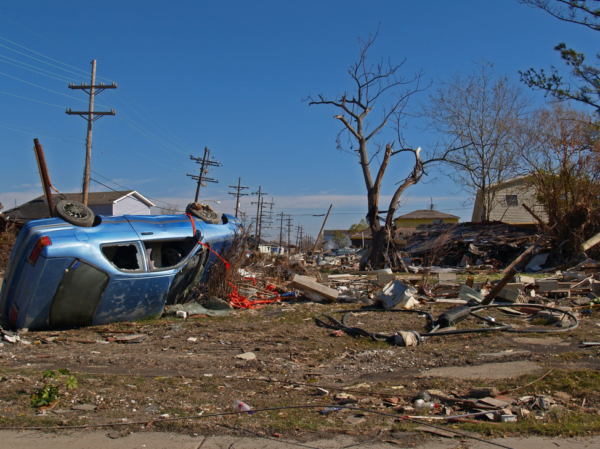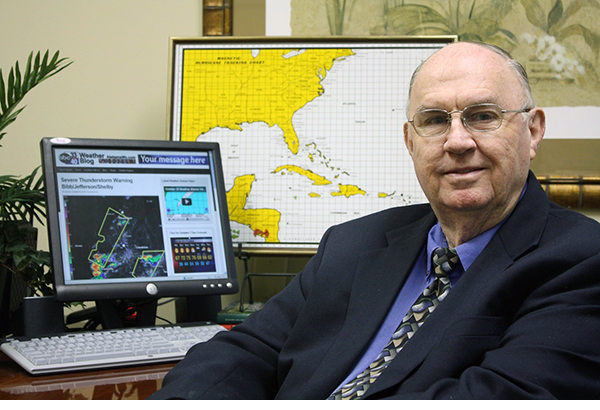How to Be Prepared for a Disaster
By Jason Williams – StormSafety.org
Being prepared won’t prevent a disaster, but it can give you the confidence you need to get through the challenge. With these preparation tips, you can be ready to deal with emergencies and disasters, both big and small.
Create a family disaster plan
What will you do when disaster hits? Who will pick up your kids at school? If meeting at home isn’t safe, where is your designated family meeting spot? Make sure everyone in the family understands the answers to these questions. Also, ask an out-of-town friend or relative to be your family contact. Each family member should call that person if separated and unable to reach the immediate family. Discuss escape routes, an evacuation plan, and other pertinent details, then have random exercise every few times a year to make sure everyone knows the drill.
Build an emergency supply kit
Put together a kit that contains at least three days’ worth of necessities. This includes food and water for each member of your household, as well as other supplies such as a flashlight, battery-powered radio, and first aid supplies. The Department of Homeland Security offers a checklist for building your kit. Over time, you can add enough items for a week, a month, or whatever time frame makes you comfortable. If you take medication regularly, ask your doctor to write a 90-day prescription rather than a standard 30-day supply. When it comes to food, freeze-dried meals, energy bars, and other dry goods are lightweight and have a long shelf life. For example, rolled oats in an airtight container can last 30 years.
Store enough water
The CDC recommends storing at least a three-day supply of water: 1 gallon of water per day for each person and pet in your family. Water should be your first priority with a goal of building up to having a two-week supply on hand. You can survive weeks without food, but only three days without water. Just remember to replace stored water every six months, and keep a bottle of bleach near your water storage for disinfecting water, if necessary.
Plan for a power outage
Without electricity, there can be widespread food spoilage and water contamination, thus necessitating the aforementioned emergency dry food and water. Be sure to have batteries, flashlights, and other backup light and energy sources, such as a generator. If you have medications that require refrigeration or medical devices that need electricity, it’s a must to have a backup power source. Your life may depend on it. Only use generators, charcoal grills, and camping stoves outdoors and away from windows to avoid carbon monoxide poisoning. Never use a gas stove or oven to heat your home. Also, keep some emergency cash in your home. When the power is out, ATMs do not work.
Be prepared to shelter in place
During an emergency, listen to local news to find out if you should evacuate or shelter in place. If officials recommend staying put, get to a safe place in your home and remain there. In preparation for this type of event, you should disaster-proof your basement, particularly if your area is prone to flooding. Place a flood detector in your basement, which will alert you when it senses water. If you get any alerts, or if there are any visible signs of leaks or water damage, such as mold and mildew, rotting wood, or bubbling paint, call a professional to determine the source of the water, fix the issue, and consider waterproofing your basement to ensure it stays a safe place. Keep in mind that waterproofing costs vary: currently, the cost to waterproof a basement in Birmingham runs between $2,475 and $5,198.
Learn survival skills
Most people can easily survive a short-term emergency. But in the case of life-changing events (such as a large-scale natural disaster, nuclear or terrorist attack, complete financial collapse, or widespread civil unrest), you must have survival skills. Plan ahead and learn how to garden. In your dry storage, including seeds and fertilizer. Take your family fishing or hunting. Go camping, build a fire, and hunt, gather, and cook all your food on the trip. While practicing survival skills, you may just develop a new hobby or a renewed love for the outdoors.
Whether a short-term power outage or a disaster that leaves your city reeling, you can survive with some preparation and know-how. Start planning now to protect yourself and your family.
For more helpful information, please visit StormSafety.org.
Category: Partner News Stories
















